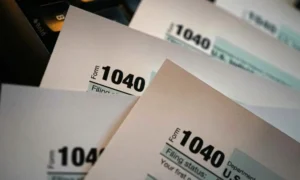Are you trying to figure out how to file your taxes while earning income from a side gig?
According to survey results from CareerBuilder, 29 percent of workers have side gigs. Even though having a side hustle is extremely common, not everybody knows how to file correctly for this.
While side gigs can rake in some sweet green leaves, you have to remember to report the icing on the cake accurately. Failure to file your side gig taxes can result in penalties, interest, and higher tax liability (no one wants that).
Fortunately, wrapping one’s head around filing when you have a side gig is not impossible. We are about to share everything you need to know to get started.
Why? Because we are proud of you for going above and beyond to give a little love to your dreams.
Let’s clear up the confusion on how taxes and side gig income works so that you can get back to the grind, my friend.
As you sort through tax documents and file your return, you’ll notice that there is a section where you can take either a standard deduction or an itemized deduction. These both offer you the opportunity to lower your taxable income.
However, it can be difficult to decide which one to choose. Do you take the standard, fixed-amount deduction? Or, do you go the itemized route and list your deductions out individually?
Today, we’re here to clear up the confusion. We’ll discuss the difference between standard and itemized deductions, as well as the pros and cons of each.
Read on to learn everything you need to know before you file!
Understanding Hobby Income vs. Self Employed Income

Is your side gig a hobby, or does it fall under the self-employment income sector?
What if you are in that sweet spot where you make money from your hobby?
The IRS treats hobbies that generate small amounts of income differently to side jobs.
Side jobs, freelancing, and small businesses all fall under self-employment.
You will need to analyze into which category your side income falls.
If you are simply involved in a hobby that is inadvertently making some money, you can file this under line 21 on Form 1040 of your federal tax return.
You will not be charged a self-employment tax on this. What’s more, you are allowed to deduct qualifying expenses, up to the amount of that income.
On the other hand, if your additional income is springing from a real side hustle—designed for making money—you will need to file it as self-employment income.
To do so, you will need to fill out Schedule C. Here you can report the income (or loss) from your side gig.
Income reported under this section counts as self-employment income and is taxed at a rate of 15.3 percent.
In the case of true side gigs, you are allowed to deduct expenses equal to and greater than income earned. This loss can legitimately offset other income (such as permanent employment or interest income).
You Might Need to Pay Estimated Side Gig Taxes Each Quarter

Before even filing your taxes, if you have a side gig, one of the first things you need to be aware of is estimated taxes.
These work similarly to withholding taxes. Withholding tax is the amount of estimated tax that your employer pays on your behalf each month to the IRS. This is then set against your total yearly tax liability.
When you are gaining income from a side gig, this does not happen. Instead, the rap is on you to make estimated quarterly payments.
By paying the estimated tax, you will avoid owing an unmanageable/surprising amount at the end of the tax year.
Also, in most cases, freelancers are required by the IRS to pay quarterly estimated taxes.
If you expect to owe more than $1,000 in taxes for the year, then you must make estimated tax payments every quarter.
This is without accounting for any withholding taxes that have been paid on your behalf or any refundable credits.
If you fail to make the estimated payments or miss a quarter, you may be charged a penalty.
How to Pay Estimated Taxes
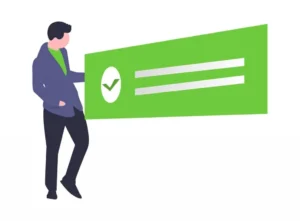
To pay your estimated taxes, you will first need to work out your projected tax liability on your side gig income for the year.
To do so, you must work out what the estimated income will be from it, and then apply the correct self-employment tax rate to that.
If you are struggling with this, it is not a bad idea to get a tax professional to assist you.
Once you have calculated this, divide your total projected tax liability by 4. This is the amount you will need to pay over each quarter.
To file the amount, you must fill out Form 1040-ES. On the form, you will find resources to assist you in calculating your payment.
Your Tax Bracket Could Change

Another thing to be aware of when working a side gig is that the extra income might push you into a higher tax bracket.
In addition, this might also cause you to be ineligible for deductions and credits that previously you could claim.
To reduce stress and potential for error, avoid letting any of these possible changes take you by surprise come tax time.
Instead, brush up on the tax brackets well in advance. Also, ensure that you get clear on which deductions and credits you are eligible for.
You Can Take Advantage of Deductions
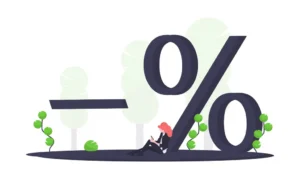
If you have never freelanced, been a sole proprietor, or done a side gig, then you might not know that you can claim deductions in the form of expenses.
In almost all situations, a side gig will incur some kind of expense.
Whether this is buying better walking shoes for your dog walking service, or a laptop for freelance online work—these are all expenses that you can claim.
The main types of expenses you can claim include:
- Startup expenses
- Equipment and tools
- Transport expenses (including vehicle expenses)
- Office supplies
- Home office expenses
- Software expenses
- Educational outlays
- Work-related dining expenses
In some cases, you may also find that you can claim portions of other partly personal expenses. Such as mortgage payments, rent, or utilities.
The most common example of this is the home office. Many freelancers and side gig hustlers use home office space.
If you meet specific requirements, you are allowed to claim a portion of these home office-related expenses.
To be eligible, you need to use your home office space regularly and exclusively for your side gig. It also needs to be your ‘principal place of business’ as per the IRS guidelines.
If, for instance, you utilize your home office to carry out administrative tasks for your side work, and meet with clients elsewhere, this should not be a problem.
However, if you occasionally use the spare room as a temporary office space, this might not qualify.
To work out exactly how much you can claim for your home office, you have one of two choices.
The IRS allows filers to claim home office expenses in the following ways:
- Regular method: all costs related to home office use are recorded, portioned, and added together
- Simplified method: the claimable expense is worked out by multiplying the number of square feet of your office by the IRS prescribed rate
If you are going with the regular method, you will need to estimate what portion of your mortgage, rent, electricity, insurance, etc. is being used for your office. This is often best worked out by considering the square footage of the office space.
For example, if your office comprises 15 percent of the square footage in your home, then 15 percent of these types of expenses could be claimed for the office.
To claim home office expenses, you will need to fill out and submit Form 8829. You might also want to go over IRS publication 587, which outlines the specifics of all business use of homes.
At first, it might seem time-consuming to record and claim every little expense, but doing so can be worthwhile.
The running costs and expenses of even the smallest side gig can add up over the year. Because of this, in many cases, they can substantially help to minimize your tax bill.
Why You Shouldn’t Overstate Deductions on Your Side Gig Taxes

While you should and can claim all eligible expenses for your business or side gig, you do not want to overstate deductions.
If the IRS gets wind of this, they are likely to conduct an audit on your taxes.
If this were to happen—and you were found guilty of claiming non-eligible expense—you could land up paying more in fines and penalties than you would have in extra taxes.
If you understate your taxes in one year, and the IRS finds out about this in a subsequent period, they are likely to charge you interest on the unpaid amount. Penalties can also apply.
Therefore, avoid claiming any expenses that are not 100% legitimately related to your enterprise. For example, a new smart TV for your lounge is definitely not something to claim. Neither is clothing, even if you are going to wear it to meetings or other events.
Why Keeping Accurate Records Is Essential
When working for a company, most people do not need to keep much paperwork or records, besides essential documents such as payslips and health insurance records.
When you are working for yourself or doing a side gig, this changes. You will need to keep accurate and detailed records of all income and expenses for each tax year.
Besides this, you will also need to keep all slips, invoices, and other supporting documents. In short, you will need to become your own bookkeeper.
To avoid extra work and confusion, it is best to keep up with your books and document filing every month.
If this is not manageable for you, then you might want to consider hiring a bookkeeper.
Why Keeping Accurate Records Is Essential

When working for a company, most people do not need to keep much paperwork or records, besides essential documents such as payslips and health insurance records.
When you are working for yourself or doing a side gig, this changes. You will need to keep accurate and detailed records of all income and expenses for each tax year.
Besides this, you will also need to keep all slips, invoices, and other supporting documents. In short, you will need to become your own bookkeeper.
To avoid extra work and confusion, it is best to keep up with your books and document filing every month.
If this is not manageable for you, then you might want to consider hiring a bookkeeper.

What to Do With (Or Without) 1099s
When receiving income other than your regular paycheck, generally, you will receive a 1099. This is a tax form that summarizes your earnings from the source.
This income could be interest, dividends, income earned for services, and other miscellaneous income.
By law, you are required to report any income reflected on a 1099 on your tax return.
You do not need to attach the forms to your 1040 unless federal taxes are withheld. In this case, you may need to submit supplemental forms, of which might be your 1099(s) might be one.
In some cases, you might not receive a 1099 for services rendered. In these instances, it is usually best to contact the source and enquire.
Although you do not need the form to file your return, you must verify the amount on it with them.
By law, companies are required to send both you and the IRS a copy of your 1099s. In some cases, yours might not arrive, but the IRS’s copy still reaches them.
If there are discrepancies between your records and the amount listed on the 1099 form, this might flag you for an audit.
Some Side Gigs Might Be Eligible for a Qualified Business Income Deduction
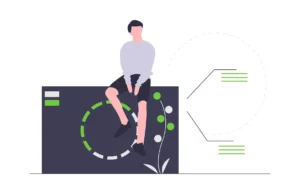
If you are operating a side business, you may be eligible for a Qualified Business Income Deduction(QBI).
The IRS has a list of requirements that need to be met in order to be eligible for this deduction.
For one, your side business needs to be a pass-through business type.
Additionally, your total taxable income for the year needs to be below $157,500. For married filers, it needs to be less than $315,000.
If your total income is over these thresholds, you may still be able to receive the deduction. However, it will taper down to 15 percent, 10 percent, and so on until it is completely reduced due to your income level.
What’s more, your business also needs to be of the right type. As per the IRS, “Specified Service Trades and Businesses” are ineligible for the deduction.
These include law firms, accounting firms, and any other business that is based on the skill and reputation of the owner or employees.
If you find that you do qualify for this attractive deduction, you will enjoy a 20% deduction from your pass-through business’s income.
Lastly, note that you can claim this deduction even if you don’t itemize your claim.
You Might Need to Hire a Professional to Help You With Your Taxes
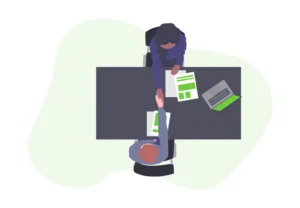
Are you filing your taxes for the first time with one or more side gigs? If you are feeling daunted by the task, you might wish to consider getting a professional to help you.
Filing taxes can be tedious at the best of times. The changes that a side gig income can wreak on your return can make it worth your while to consult a tax pro who can guide you on how to correctly (and favorably) handle your taxes.
If you need professional tax and financial services, contact us as soon as possible, and we will be happy to discuss how we can best serve you.
Until then, may your side gig flourish, and your dreams come true!



